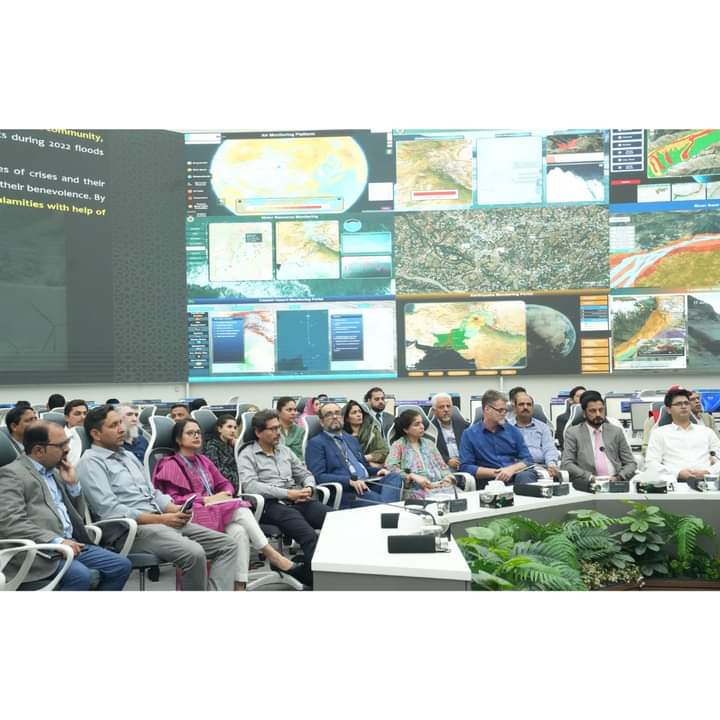
Islamabad : The National Emergency Operation Centre has been monitoring the current smog situation in Pakistan and the surrounding region. Our team has access to state-of-the-art ground-based and space-based monitoring tools, which allow us to analyze and project sectoral emissions of pollution from various sources, including industry, transportation, and agriculture. This includes emissions from stubble burning, volatile organic compounds, and nitrogen oxides, as well as surface-level ozone and particulate matter like PM10 and PM2.5. Using information on aerosol optical depth, our team is identifying hotspots significantly affected by smog.
Due to prevailing atmospheric conditions—higher humidity, low wind speed, and increased upper atmospheric pressure—it is anticipated that smog conditions will persist throughout November and December in the plains of Punjab. Urban centers such as Lahore, Faisalabad, Multan, Bahawalpur, Peshawar, Mardan, and Nowshera are expected to experience smog during these months.
Precautionary Measures:
To mitigate the effects of smog, we recommend taking several precautionary measures, including:
- Avoid unnecessary outdoor exposure during peak smog hours, particularly in the morning.
- Wearing masks during outdoor activities.
- Staying hydrated.
- Using dehumidifiers and air purifiers to improve indoor air quality.
- Utilizing efficient transportation methods, such as carpooling and eco-friendly driving, while also using COx and NOx filters.
